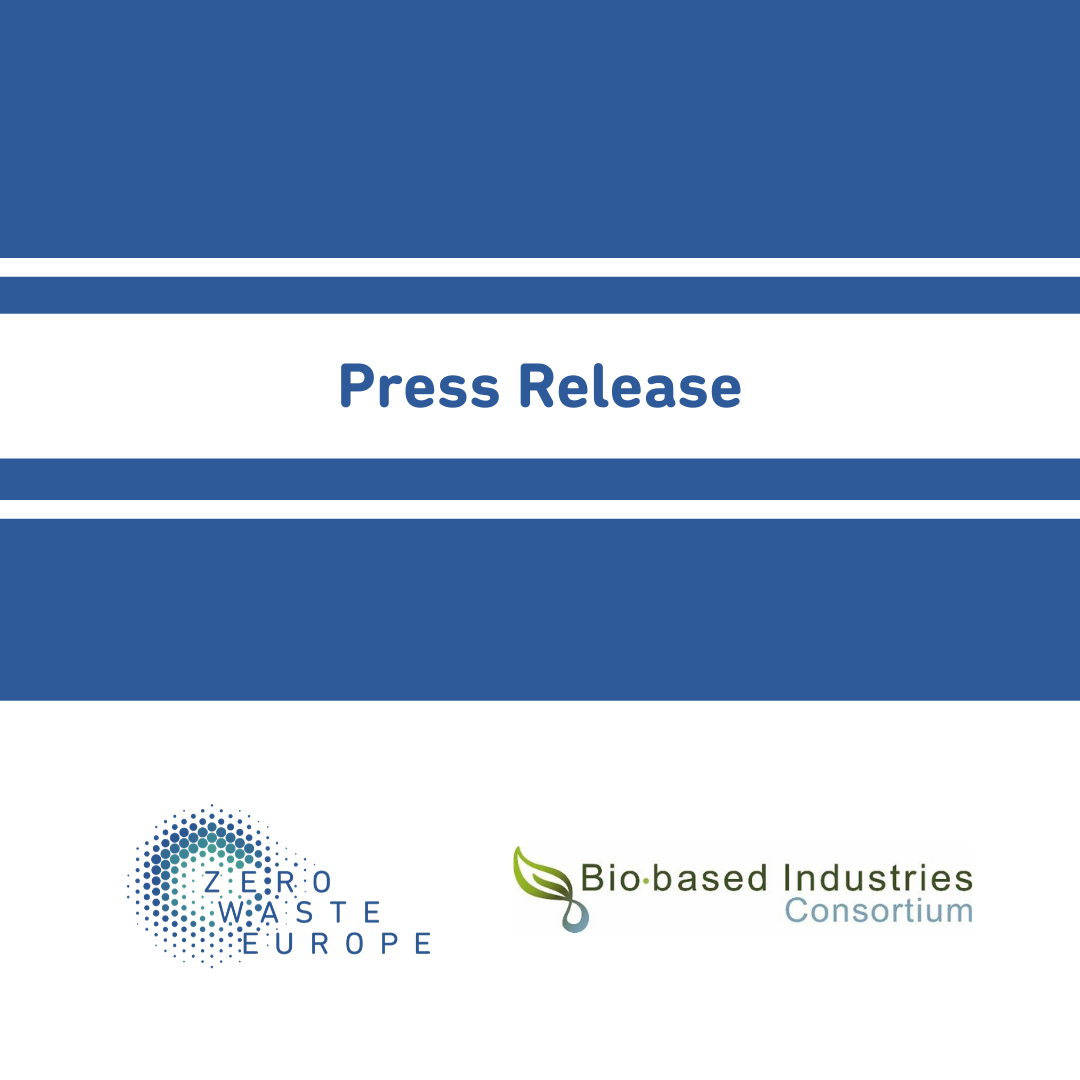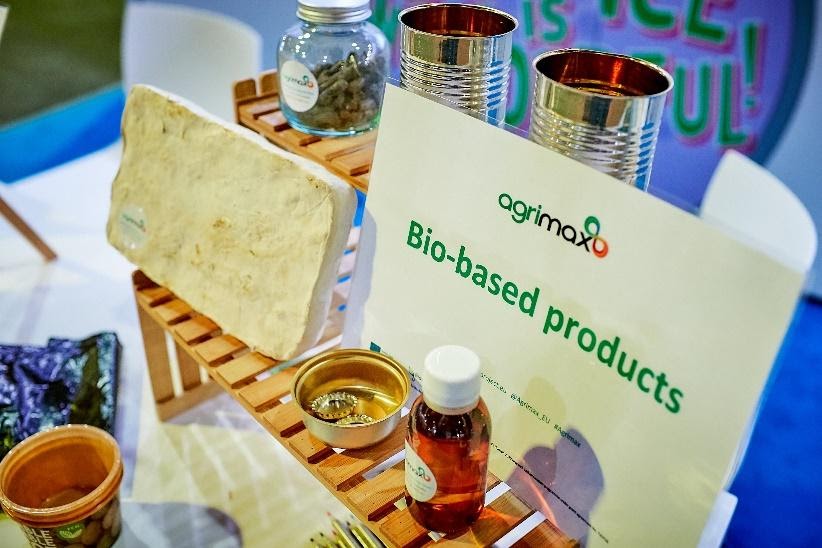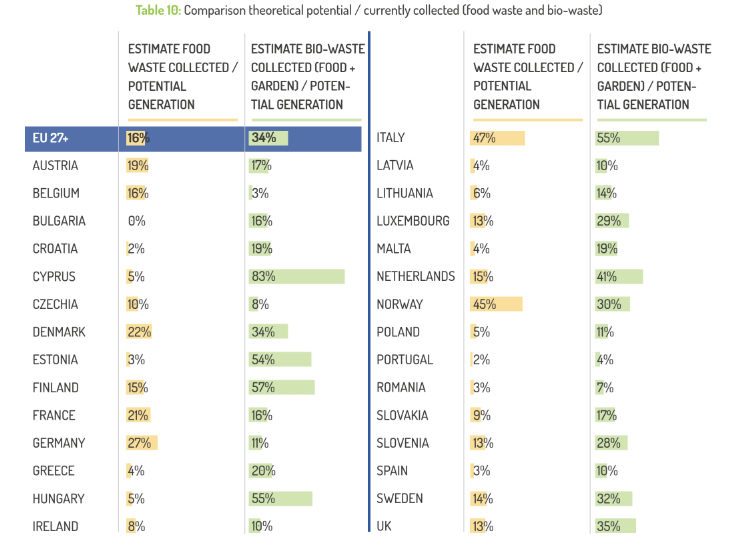Joint press release: Tackling Europe’s food waste problem – bio-based industries offer innovative solutions

Brussels, 15th June 2020
The Bio-based Industries Consortium (BIC), Europe’s leading industry association putting circularity, innovation and sustainability at the heart of the European bioeconomy, has teamed up with Zero Waste Europe (ZWE) to produce a first-of-its-kind report identifying the untapped potential to valorise bio-waste (garden and food waste) in Europe.
The report details the current generation and capture rates of bio-waste for each EU27 Member State, plus Norway and the United Kingdom. For food waste, the current capture is only 9,520,091 tonnes per year, just 16% of the theoretical potential, estimated at 59,938,718 tonnes (see graph below).
The report and country factsheets provide examples of how the bio-based industries contribute to tackling this waste challenge as well as citing best practices in waste management at municipal level. Bio-waste can serve as a valuable feedstock for the bio-based industries and the sector is well-placed to convert bio-waste into high-value bio-based products. This innovation can alleviate Europe’s food waste challenge and stimulate new opportunities for sustainable growth, contributing to Europe’s green recovery.

The bio-based sector is already valorising bio-waste in smart and efficient processes with zero-waste objectives. Several projects funded by the Bio-based Industries Joint Undertaking (BBI JU) demonstrate how innovation in our sector can convert bio-waste into high-value bio-based products. The bio-based industries seek to achieve a resource-efficient and zero-waste society as identified in our Vision. The planned EU public-partnership – Circular bio-based Europe – will help further realise this
Said Dirk Carrez, BIC Executive Director
The report shows that biowaste management remains an untapped potential for the European Union to further transition to a Circular Economy. Only 16% of the potential is currently captured and, through proper initiatives, this number could be multiplied by 5 so as to reach 85%. This shows the need for the EU and Members States to maintain and strengthen their effort in biowaste collection and treatment as key steps towards soil regeneration, circularity and climate neutrality
Added Pierre Condamine, Waste Policy Officer at Zero Waste Europe
A summary of the report ‘Bio-waste generation in the EU: Current capture levels and future potential’ is now available here.
The full report will be made available to the public on July 6th.
ENDS
Press Contacts
Agnese Marcon, Communications Coordinator, Zero Waste Europe
[email protected] +32 (0) 456 078 038
Ben Kennard, BIC Communications & Stakeholder Relations,
[email protected]
Notes
The Bio-based Industries Consortium (BIC) is the private partner in the €3.7 billion public-private partnership with the EU – the Bio-based Industries Joint Undertaking (BBI JU). Its membership includes 240+ industry members covering the whole value chain, from primary production to the market, across multiple and diverse sectors including agriculture & agri-food, aquaculture & marine, chemicals and materials, including bioplastics, forestry and pulp & paper, market sectors, technology providers and waste management & treatment. BIC’s membership also includes over 200 associate members such as research organisations, academia, trade associations, etc. To learn more about BIC, you can consult our brochure here.
Zero Waste Europe is the European network of communities, local leaders, experts, and change agents working towards the same vision: phasing out waste from our society. We empower communities to redesign their relationship with resources, to adopt smarter lifestyles and sustainable consumption patterns, and to think circular.